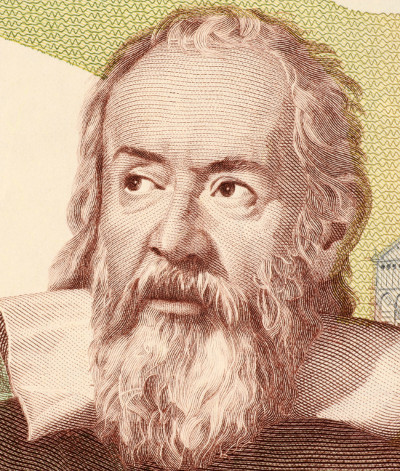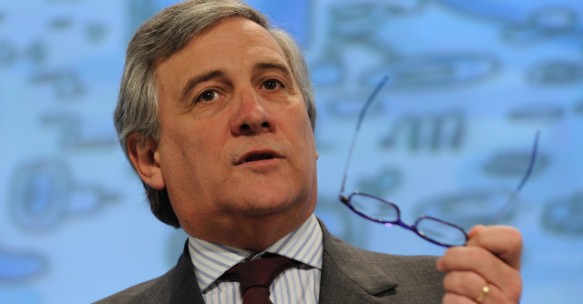Happy Birthday, Galileo!

Galileo Galilei would have turned 450 this year, just as the programme that bears his name, Galileo, the European satellite navigation system, is about to be born.
On Galileo’s birthday – February the 15th – we take a look at the other Galileo, on the eve of early service declaration.
 As far back as the 1990s, the European Union knew that Europe needed its own independent global satellite navigation system. In the spirit of other momentous European aerospace endeavours – such as Ariane and Airbus, the European Commission and the European Space Agency joined forces to build Galileo, the system now set to deliver initial operational services at the end of this year.
As far back as the 1990s, the European Union knew that Europe needed its own independent global satellite navigation system. In the spirit of other momentous European aerospace endeavours – such as Ariane and Airbus, the European Commission and the European Space Agency joined forces to build Galileo, the system now set to deliver initial operational services at the end of this year.
But what about the man the system was named for?
Destined for greatness
Galileo Galilei was a man ahead of his time… an Italian scientist in an age when being a scientist was itself an occupational hazard. He formulated the basic law of falling bodies, built a telescope with which he studied lunar craters and discovered the moons of Jupiter, and defended the Copernican theory that placed the Sun, not the Earth, at the centre of the universe. His work and avant-garde thinking paved the way for centuries of innovation, daring others to look beyond traditional boundaries.
Galileo was born in Pisa on February 15, 1564. No one then could have imagined that he would one day grow up to change the way we see our world (and have a satellite navigation system named after him!).
Galileo's road to fame was not without its pitfalls and politics, nor was Galileo’s. But Galileo persevered, and so has Galileo.
‘Eppur si muove’ (And yet it moves) – Galileo Galilei
Like Galileo, Galileo has a worthy colleague called Copernicus. Galileo Galilei was driven by the theories of Nikolai Copernicus. Today, Europe’s Copernicus Earth Observation programme will benefit from Galileo’s pinpoint positioning. We expect the two to enjoy a long and fruitful collaboration, from which we will all benefit greatly.
What’s in a name?
 It was former EU Commissioner, Neil Kinnock who first came up with the idea of naming Europe’s satellite system after the famous astronomer. This was before he was called Lord Kinnock, back when he was still Commissioner for Transport. We’re not sure if he was dubbed Lord Kinnock because of his work in satellite navigation, but if you ask him, he might just say it was – he is known to have said that he regards the establishment of the Galileo project as his greatest achievement.
It was former EU Commissioner, Neil Kinnock who first came up with the idea of naming Europe’s satellite system after the famous astronomer. This was before he was called Lord Kinnock, back when he was still Commissioner for Transport. We’re not sure if he was dubbed Lord Kinnock because of his work in satellite navigation, but if you ask him, he might just say it was – he is known to have said that he regards the establishment of the Galileo project as his greatest achievement.
Now Galileo the project is becoming Galileo the service. As current EU Commission Vice President and Galileo compatriot Antonio Tajani has stated, “Galileo is now a reality. We have four satellites in orbit, there are numerous ground stations around the world… and the accuracy is very stable and unmatched.”
In fact, ESA has recently revealed that since March 2013, test vehicles around the world have been assessing the accuracy of positions returned during the Galileo In-Orbit Validation (IOV) phase. More than 10,000 kilometres of road tripping later, the data show that 95% of the time Galileo positioning accuracy averages eight metres horizontal and nine metres vertical, with an average timing accuracy of 10 billionths of a second.
Long live Galileo
Galileo Galilei represents what was best in the Europe of the Renaissance – including freedom of thought, a belief in humanity and a belief in the power of reason, which knows no earthly limits.
Today’s Galileo, harnessing human and technical assets that also exceed earthly limits, is a tool for betterment in the hands of European society and people around the world. It stands as a symbol of European and global unity, a project we have all had a hand in, something we can all believe in.
Yet another Galileo legacy for future generations.
“All truths are easy to understand once they are discovered; the point is to discover them.” – Galileo Galilei